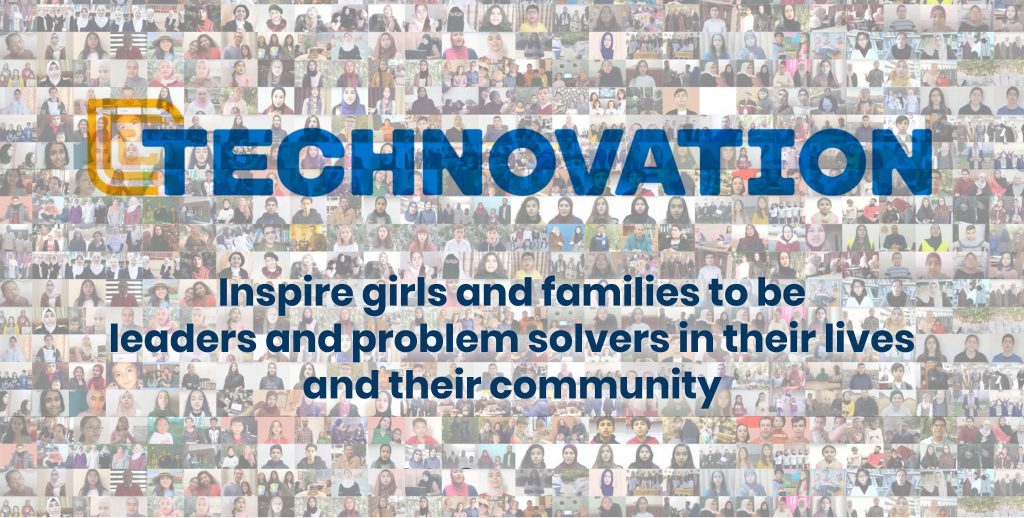Technovation Girls: Q&A with BCIT Computing’s Erika Ram
The gender gap in STEM fields continues to be of concern. According to Statistics Canada, the shortage of women in STEM is detrimental to women, as jobs in the areas of science and technology – including engineering and computer science – are among the highest-paying and fastest-growing jobs. Greater diversity in the field also strengthens innovation and performance, and better reflects the community being served.
Closing the gender gap in STEM fields is still a work in progress. BCIT Computing faculty member Erika Ram tells us about efforts to support girls in STEM through Technovation Girls.
Q: What is the purpose of Technovation?
Erika: Technovation Girls is a non-profit tech entrepreneurship competition where girls aged 10-18 work in teams, with the help of a mentor, to develop a mobile app that tackles real-world problems in their community. The goal is to empower girls to be engaged leaders and creative problem-solvers in their communities through technology and engineering education.
Q: Why do you feel this work is important?
Erika: Women are significantly underrepresented in STEM (science, technology, engineering, mathematics) fields. It’s evident when you look around our classrooms, and many of the tech companies here in Vancouver. Despite the high job demand, computer science remains a male-dominated field. Historically, girls may have been discouraged from pursuing education and careers in technology. Programs such as Technovation provide early exposure, positive role models, and foster engagement and excitement towards programming.
When I was school-aged, I had no idea that Computer Science and programming offered a blend of creativity, problem-solving, and analytics that I enjoy, and in which I thrive. If I had known earlier, I probably would have made some different decisions.
“When I was school-aged, I had no idea that Computer Science and programming offered a blend of creativity, problem-solving, and analytics that I enjoy, and in which I thrive.” – Erika Ram
Q: What is your role?
Erika: My role in Technovation Girls is as a BC Chapter Ambassador and Mentor. Along with my colleagues at SFU and UBC, as a Chapter Ambassador, we serve as the primary contact and provide ongoing support for stakeholders, teams, and mentors in the BC Chapter of Technovation Girls. We take care of participant and mentor recruitment. We also organize events such as information sessions, Technovation Girls Launch Workshops, mentor training sessions, office hours, and Regional Pitch Events.
Traditionally, participant teams have been required to find their own mentors and facilitate meetings in-person. This year, I worked to streamline the process by creating a co-mentorship program. Now we bring post-secondary students and faculty together to support their participant teams. We’re using a BCIT Learning Hub online course technology to provide resources and facilitate meetings.
Q: How are BCIT students and faculty involved in Technovation BC?
Erika: BCIT students are involved as Student Mentors. They’re paired with a BCIT computing faculty member as a co-mentor to provide support and guidance virtually to a team of up to five girls. They act much like project supervisors, virtually collaborating and meeting once a week. They’re there to help inform, advise and motivate their teams as they work through online workshops and modules to create an app.
Our students are able to share their enthusiasm and passion for computer studies. We hope this energy leads the high school girls on their own journeys in tech. BCIT students give guidance based on their own experiences doing hands-on projects, and act as a positive role models.
Q: What do you think BCIT students will gain from this experience?
Erika: By extending mentor opportunities to our students, they’re able to build essential leadership, organizational, problem-solving, communication, and interpersonal skills. Being a mentor also reinforces study skills and knowledge of their own course subjects and topics. Teaching and mentoring someone else allows our students to practice higher-order thinking. They’re moving beyond remembering and recalling information into a deeper application, analysis, synthesis, evaluation, and creation.
Q: What are you enjoying about being involved in Technovation?
Erika: So far working with the participants and mentors has been really inspiring. It’s amazing to see the scale of community awareness and social consciousness these girls have. The teams are currently in the early stages of ideation, but it’s clear they’ve put a lot of thought into the issues they want to help address in their communities. For example, the team I am mentoring is working on an app to help reduce stigma and provide resources for teen mental health issues.
Q: What’s next for this initiative?
Erika: Currently, we have 189 participants across BC. In the next phase, we’ll help support and encourage them as they develop their apps. We are also looking at developing more workshops and engagement opportunities, as well as further expanding and streamlining the mentor/mentee training and matching process.
BCIT’s involvement in Technovation Girls has been supported by a donation from TD Bank, for which we are grateful.
